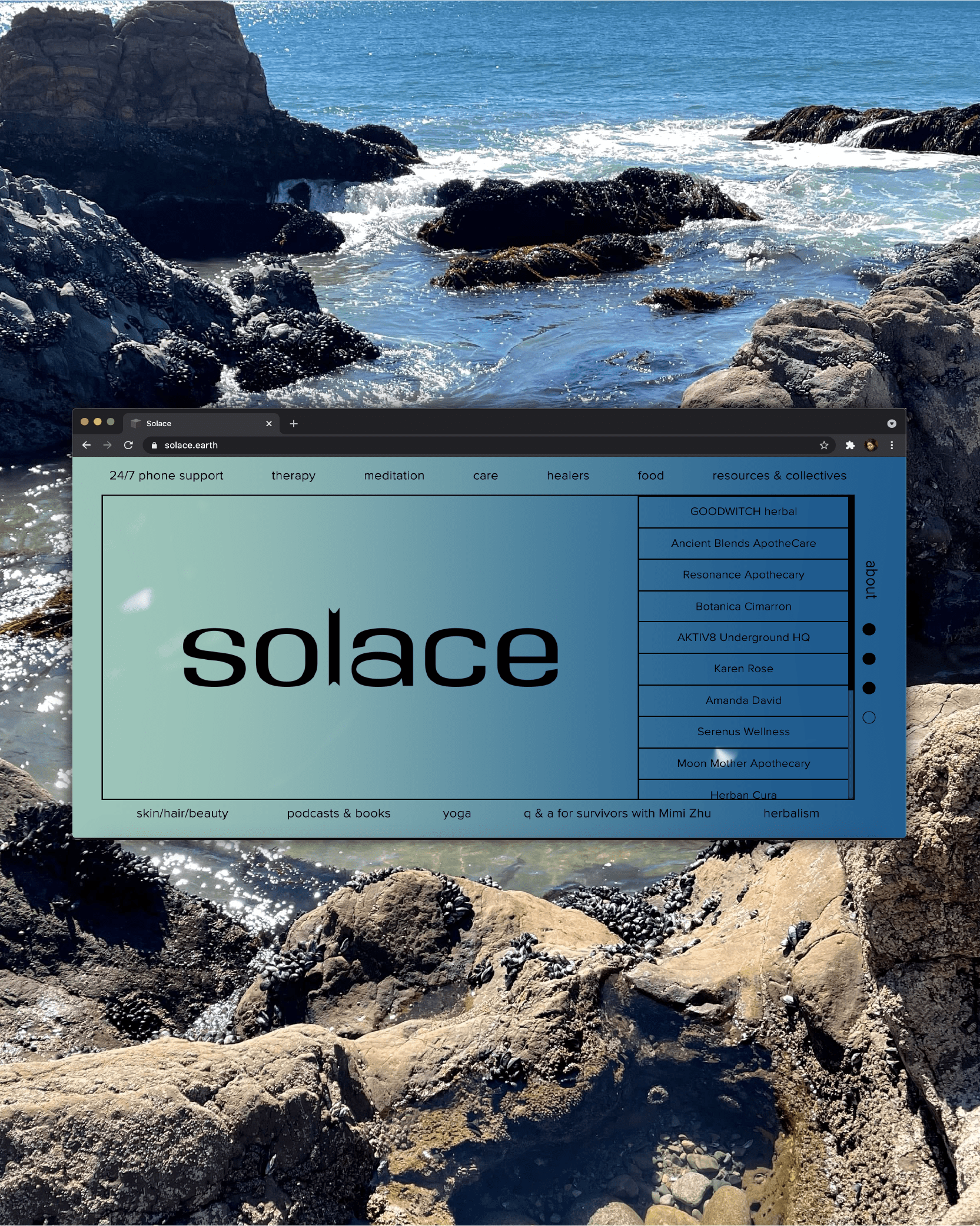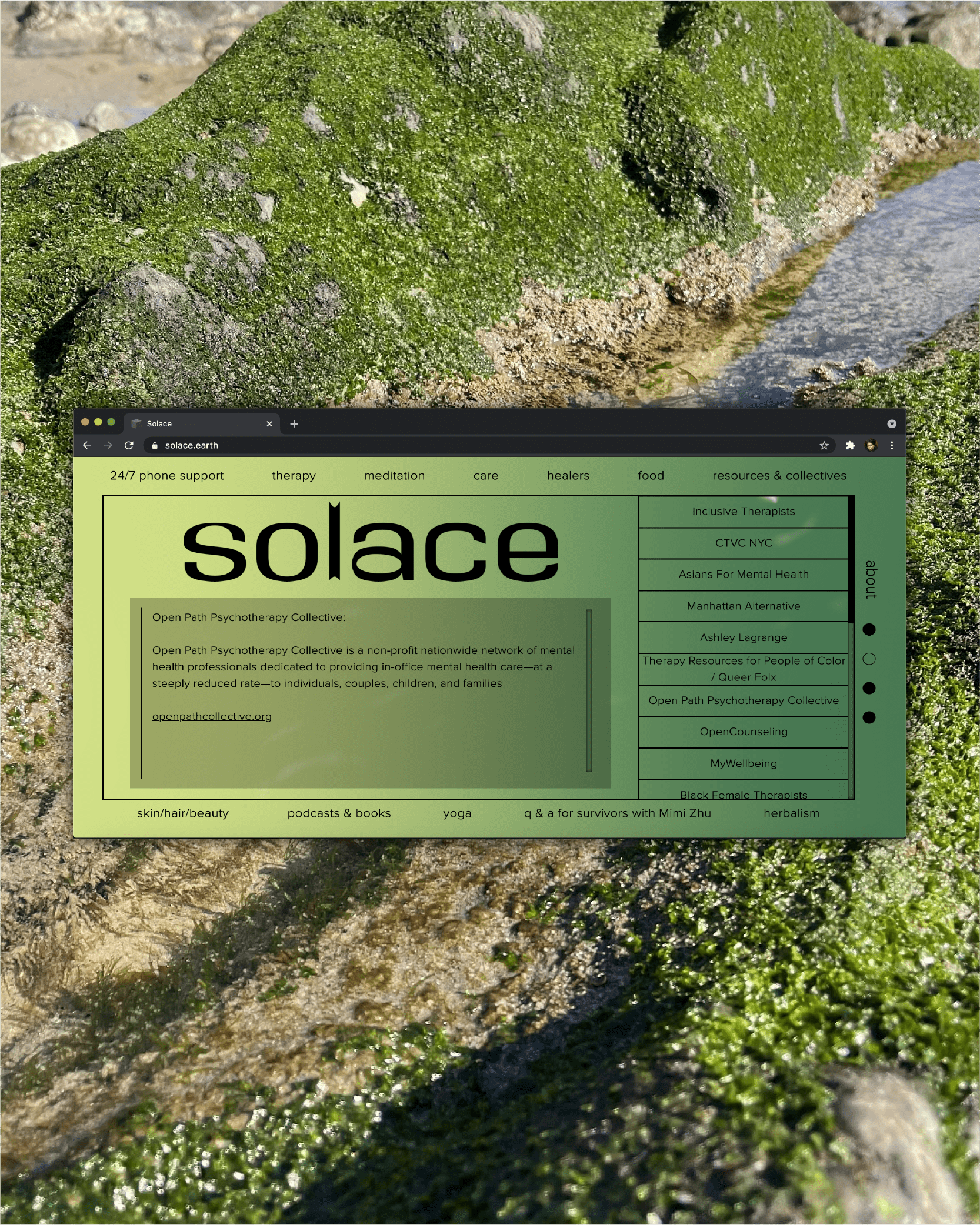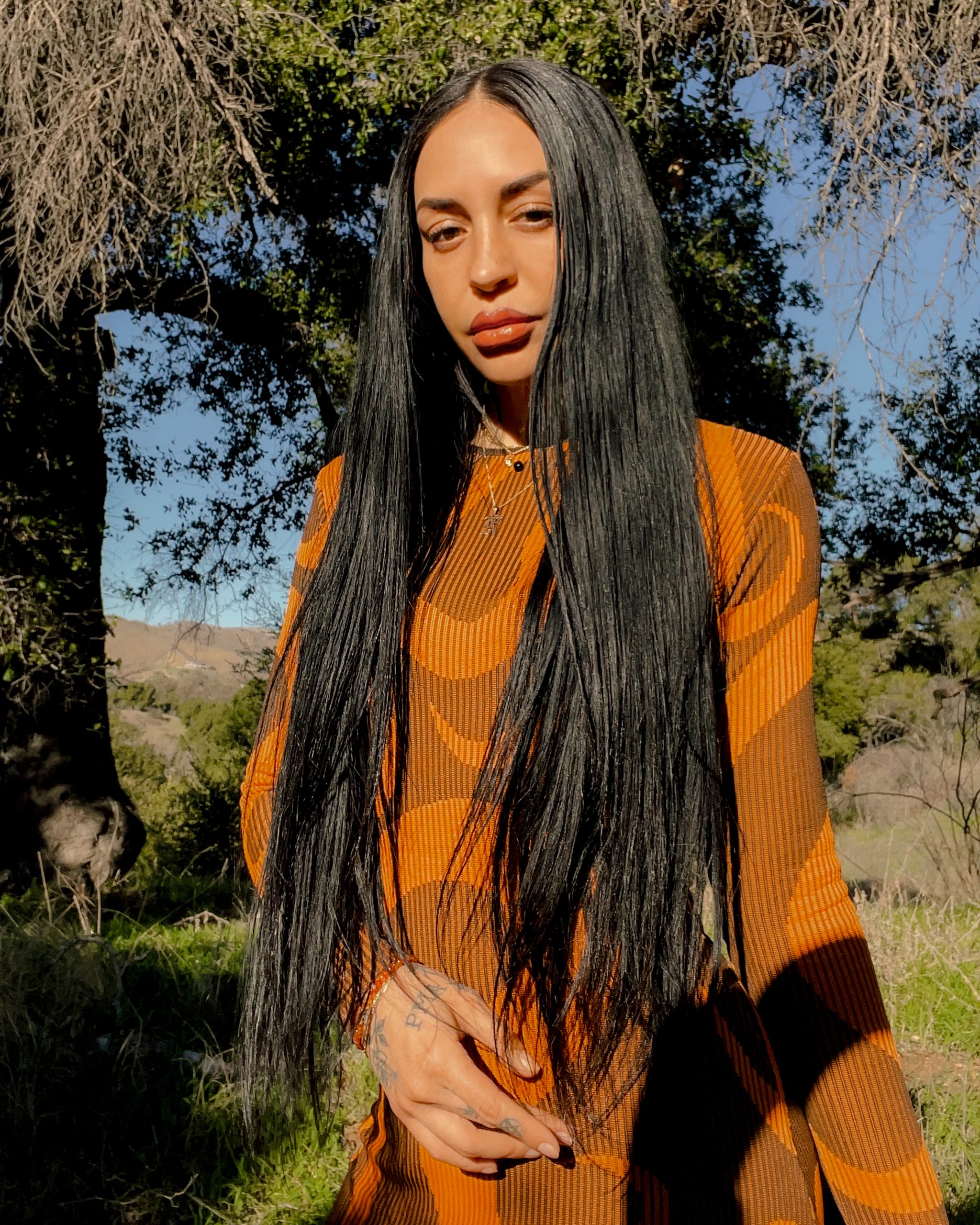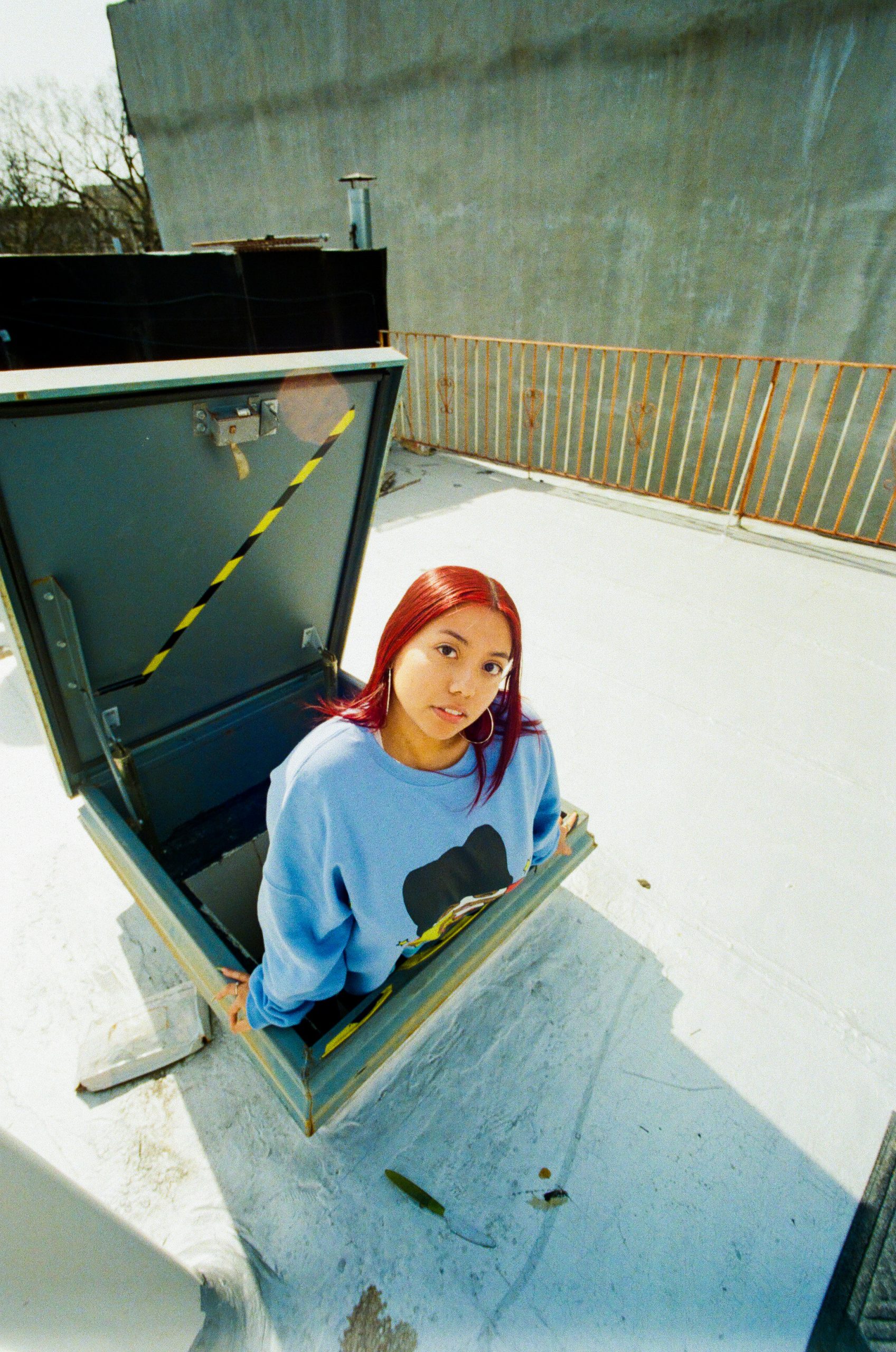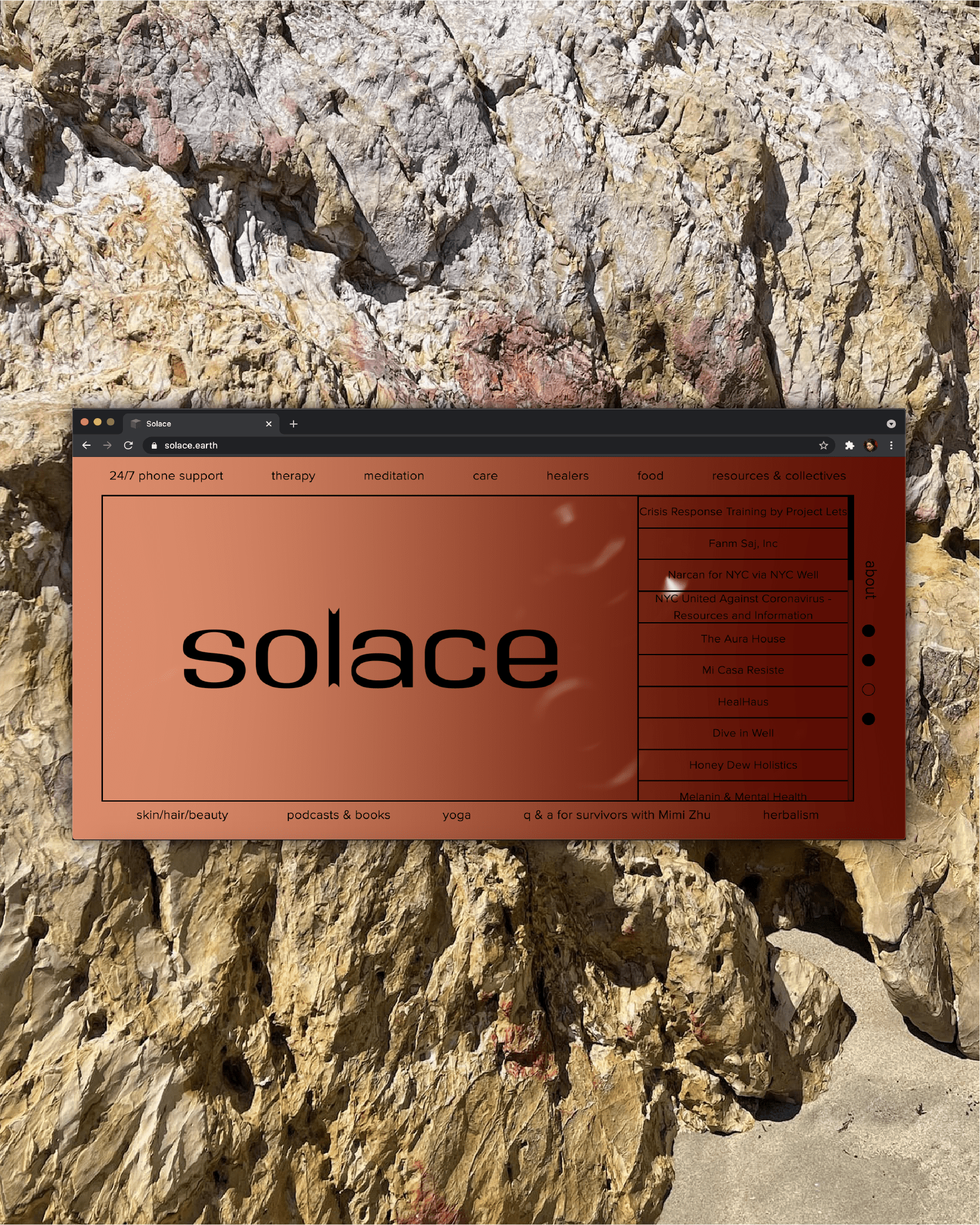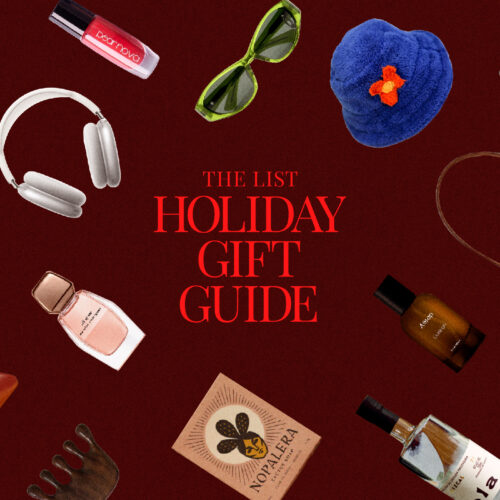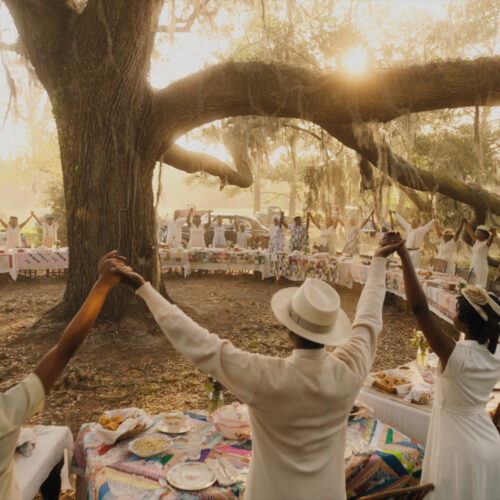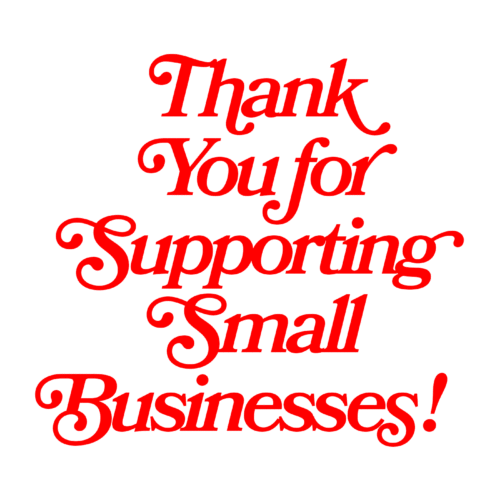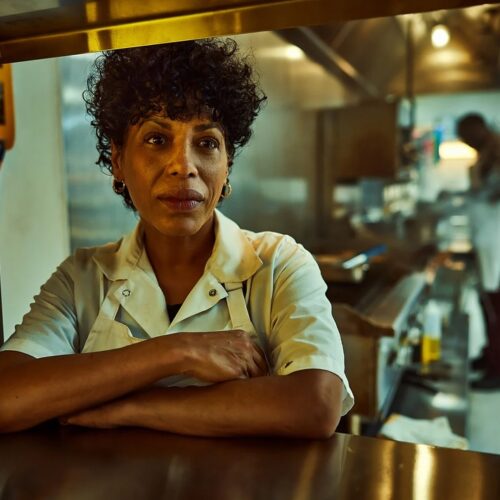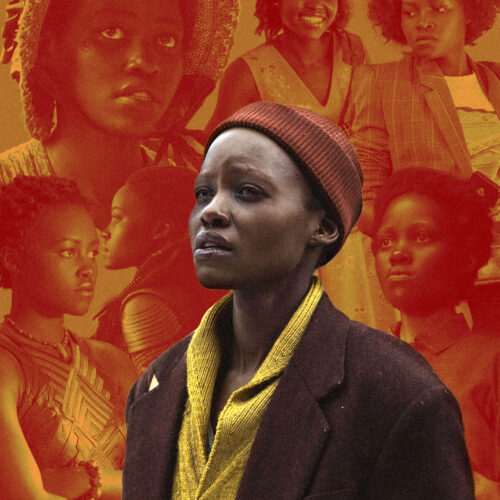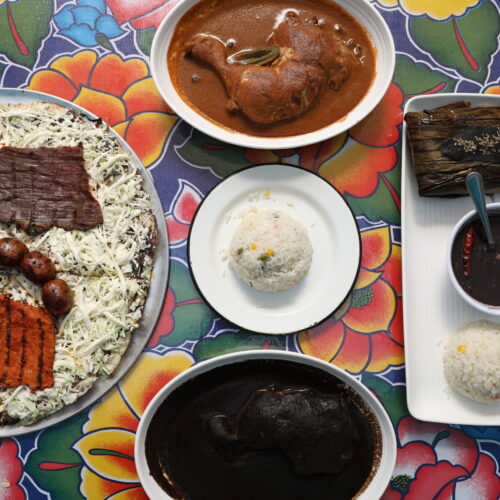More than a year has passed since COVID-19 changed the pace of how many live. For some, this period has been marked by estrangement – from loved ones, vital communities, and especially one another. For others, this period has also been shaped by loss, pain, and survival. A virus that spreads in social settings has prompted many to contemplate how to be there for the people they love and themselves.
During this period, photographer/director Natalia Mantini and designer/web-developer Lizette Ayala came together through shared grief. For Mantini and Ayala, COVID-19 has not only revealed the enormous gulf of privilege between BIPOC and non-BIPOC bodies, but also illuminated the lack of practical resources available for marginalized folks, particularly within the realms of mental health support, healing, and wellness.
Recognizing a gap of accessibility, Mantini and Ayala considered how their shared backgrounds in art, culture, and technology could empower them to confront this lack of accessibility. “We asked ourselves, how can we contribute and share resources that empower people and offer respite from clinical and institutional spaces that perpetuate harm?,” said Mantini over a Zoom call from her home in Los Angeles.
Their answer: build a digital library of accessible methods of support. In April 2021, they launched Solace, a virtual platform designed to help us save one another. “Many people are not taught how to take care of ourselves and how to ask for help,” said Ayala on a Zoom call from her home in New York City, “Solace is a digital space that has vetted resources for and by BIPOC and LGBTQ communities.”
Reflecting on their shared Latinx upbringings, Mantini and Ayala took this idea a step further, understanding that violence, transphobia, homophobia, and anti-blackness are deeply rooted in Latinx communities. “Liz and I wanted to open communication on harm reduction and creating safer spaces for marginalized groups,” said Mantini.
Solace is designed to be a digital friend, connecting marginalized folks to therapy, meditation, care, healers, and podcasts. Echoing its founders’ value of mutual aid, the platform links to resources including “Brown Girl Therapy,” “Asians for Mental Health,” “Thorn Self Defense,” “Tarot for the End of Times,” and “RAINN National Sexual Assault Line.” Solace branches to collectively researched Google Docs, Instagram posts with comments from dozens of people sharing therapists, coaches, and healers offering reduced or free sessions, donation-based virtual yoga classes, maps of active community fridges, and more.
Looking towards the future, Mantini and Ayala plan to continue collecting and uploading resources, collaborating with community members, and unraveling the systems that weigh down on our wellbeing. Solace embodies the healing process BIPOC and LGBTQ individuals are undergoing on personal, community, and global levels after a year of detachment and solitude. It also promises hope and optimism that we’re together in this process of challenging norms and destigmatizing the all-too-human moments when we need to reach out for support.
